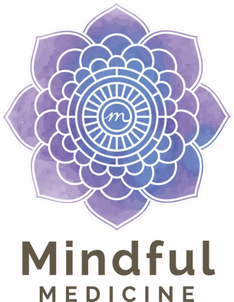|
Dialectics is an interesting word. Unless you are participating in a DBT Skills Group or your psychotherapist has been trained in dialectical behavioral therapy, dialectics in not a word that we typically use in everyday language.
Dialectical means that two opposite ideas can be true at the same time, and when considered together, can create a new truth and a new way of viewing the situation. In other words, there is always more than one way to think about a situation. For example, your teen wants to stay out until midnight because that’s when the fun starts (this is true) and you want them to be home by 10pm so you won’t worry (this is also true.) Your spouse wants to buy a new car because the current car is 10 years old and he wants the standard features of a new car. You would rather keep your old car because it is paid for and running fine. Instead of saying I am right and you are wrong, let’s see how we can find the middle path. DBT teaches us to move away from either/or, black and white thinking and consider both/and. You will be amazed at how substituting and instead of but changes how you feel and perceive a situation. Marsha Linehan, Ph.D. developed dialectical behavioral therapy in the 1980’s for women diagnosed with borderline personality disorder. These women typically have a history of interpersonal childhood trauma. As adults they struggle with having disordered attachments. They often experience suicidal ideation and cope by engaging in self-injury, substance abuse, risky sex, etc. In 1990, DBT was adapted to assist teens and their families who struggled to manage their emotions and behaviors. However, DBT is not just for people who have difficulty developing and maintaining relationships and/or emotional regulation. Dialectical behavioral therapy is a blend of DBT and cognitive behavioral (CBT) principles and Zen mindfulness. DBT teaches useful skills and strategies for everyone - teens, parents, therapists, teachers, coaches, business leaders - anyone impacted by living and working in today’s world. In a world divided by politics, the pandemic, racism, police brutality, sexual and gender identity, the environment, etc.… practicing your DBT skills is a great way to be more responsive rather than reactive. DBT is based on the bio-social theory. Bio stands for biology - the way we are born, our temperament. Some people are born emotionally sensitive and reactive. When emotionally triggered by a person, place or thing, it takes a while for some people to come back down to their emotional baseline. Sometimes there is a mismatch in temperaments. The child may be shy and anxious and one or both parents are outgoing and social. Or vice versa. Social refers to the environment. We live in a chaotic and ever-changing world. We often feel invalidated - we are told by someone in a position of power (a parent, teacher, coach, boss, supervisor) that there is something wrong with us. The way we are thinking, or feeling does not make sense. You are told you shouldn’t feel that way. You are making a big deal out of nothing. You may be told “get over it, it’s no big deal.” When invalidated time and time again, we learn that we cannot trust how we think and feel. We are filled with self-doubt. We are unable to confidently advocate for ourselves and others. DBT teaches us how to validate ourselves and others. Validation lets the other person know that you hear them and understand. It does not mean that you approve, like, or have to settle. When validating someone, It’s helpful to find or identify the kernel of emotion the other person is feeling. “It sounds like you’re really frustrated right now.” “That comment was so hurtful.” Mindfulness: DBT teaches us strategies and skills to stay in the present - mindfulness skills. DBT is interwoven with principles of Zen mindfulness. In DBT, we learn to recognize and understand the three states of mind - emotion mind, rational mind and wise mind. We learn and practice skills to keep us in wise mind. These skills include observing, describing and participating. Don’t judge (yourself or others), stay focused, and do what works. When feeling emotionally dysregulated, it is important to stay in the present or wise mind. When we continue to reflect on the past, we feel sad, guilt and shame. When we focus on the future, it is full of the unknown. We may catastrophize or try to predict the future. This leads to thinking errors and feelings of anxiety, fear and uncertainty. When we are in wise mind, we are more aware of the consequences of our actions and we are more able to respond rather than react. Distress tolerance skills teach us how to manage situations that we don’t like, cannot change in the moment and we don’t want to make the situation worse. To manage your emotions, it is important to recognize and identify your emotions. What do you do when you have tried all of your coping strategies, and nothing works? There are a set of distress tolerance skills called the TIPP skills. These skills are a quick and easy way to “tip” your body chemistry when you are really upset. TIPP skills are effective at reducing painful emotions, without the negative consequences of engaging in self injury or substance use. TIPP skills work like a PRN medication without the cost or side effects. Emotion regulation skills help one understand the emotions experienced, reduce emotional vulnerability and decrease the frequency of unwanted emotions. The Buddha tells us that it is impossible to live in a world without suffering. However, we can learn and practice strategies to be successful in managing it. Interpersonal Effectiveness. This is one of my personal favorites. It is full of strategies to develop and maintain positive relationships. You learn and practice strategies to effectively get what you want, to effectively say “No”, and to keep your self-respect. Walking the Middle Path: Walking the Middle Path is a module developed specifically for teens and families. This module zeros in on the conflict that teens and families face. In addition, this module examines ways in which families get polarized, don’t see eye to eye and find themselves escalating or shutting down. This module focuses specifically on balancing acceptance and change by “walking the middle path,” as well as validation and behavior change. DBT Assumptions: Last but not least are the DBT assumptions. These are unproven beliefs. However, if you are able to buy into these assumptions, you are more likely to become more accepting, less judgmental of yourself and others and think and act more dialectically. If you like what you have read and believe that DBT may be helpful for yourself or a family member, feel free to reach out. I am happy answer your questions and lead you in the right direction. I look forward to hearing from you!
0 Comments
Leave a Reply. |
AuthorWelcome to the Mindful Medicine blog! Here our holistic practitioners will provide you with health and wellness education, which we hope will be valuable on your journey towards greater health. Feel free to contact us with any feedback or questions. Thanks for being here. Archives
September 2023
Categories |


 RSS Feed
RSS Feed